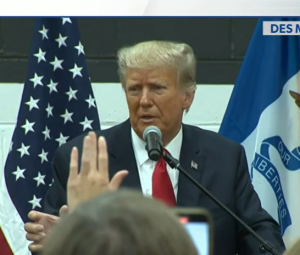Maryland’s primary election will be packed with political drama, a fight for a crucial Senate seat and some intra-party conflicts. Maryland, a Democratic stronghold, will vote in the primaries on July 19, 2022, restarting the election season in the country.
While incumbent Democrats are likely to remain largely unchallenged, the crowded race for various Republican nominations has been raging for months. Former President Donald Trump also stepped in, endorsing a candidate for the governor’s office.
Also Read: US primaries: What’s on the ballot in Maryland?
Here are three things to look out for in the Maryland primary elections:
A political do-over
Anthony Brown, a member of the Democratic party, will be stepping down from his regular role of representing Maryland’s 4th Congressional district in the US House. Instead of retiring, Brown will now be contesting the upcoming primary elections for the office of the Attorney General.
Former Rep. Donna Edwards, who held the seat from 2008 to 2017, is running to get her job back representing the Black-majority district in the suburbs of the nation’s capital. She will face former county prosecutor Glenn Ivey.
Drama in the GOP
Maryland’s outgoing governor Larry Hogan has picked his potential successor and pit him against a candidate who has been backed by former US President Donald Trump. The confrontation amongst the Republicans may also evolve into a primary challenge in 2024, at the onset of the presidential elections.
Kelly Schulz is running as Hogan’s hand-picked successor to carry on his legacy. She is running against Dan Cox, who has challenged Hogan’s COVID-19 stay-at-home orders and regulations, saying they were unconstitutional.
Also Read: Maryland primary elections: All you need to know
A bid to retain the Senate
Maryland has only one US Senate seat that can be contested this year, and Democrat Chris Van Hollen has gone all in. The lawmaker’s only major challenge: His own health.
Van Hollen suffered a minor stroke in May but said doctors had told him there would be no long-term effects or damage. He said he experienced lightheadedness and acute neck pain while delivering a speech and sought medical care once he returned home.







